Professional paver installation that creates stunning, durable outdoor living spaces you’ll enjoy for decades.
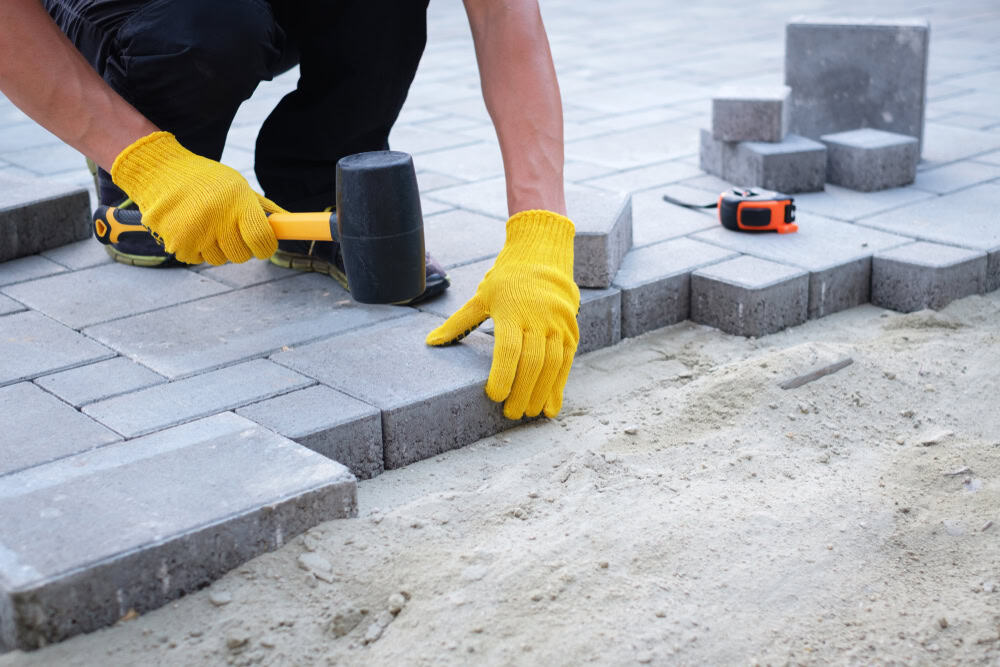
Hear from Our Customers
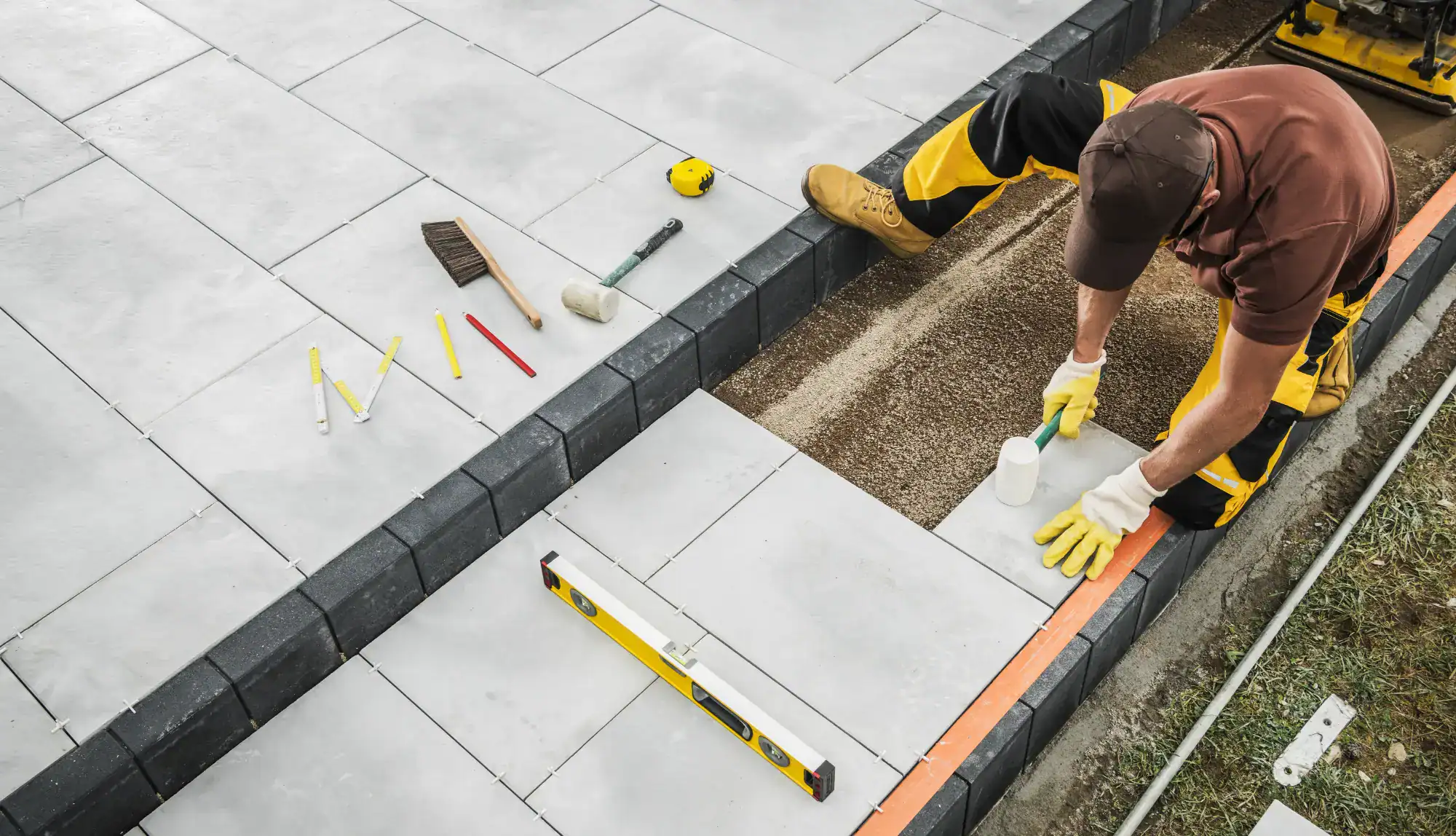
Your paver patio becomes the centerpiece of your property. No more settling for concrete slabs that crack or wooden decks that rot and splinter every few years.
You get a surface that handles everything—from hosting summer barbecues to withstanding harsh New York winters. The pavers interlock to create a stable foundation that won’t shift or sink, while the variety of colors and patterns means your outdoor space reflects your style.
Most importantly, you’re investing in something that adds real value to your home. A properly installed paver patio or driveway isn’t just functional—it’s the kind of upgrade that makes neighbors stop and take notice.
We’ve been serving Nassau County homeowners since 1999. We’ve seen what happens when paver installations are rushed or when corners are cut on the foundation work.
That’s why we do things differently. Every project starts with proper excavation and base preparation—the foundation work that most homeowners never see but makes all the difference in how your pavers perform over time.
We understand Salisbury’s unique soil conditions and drainage challenges. Our team knows how to account for the clay content in local soil and ensure proper water runoff—details that prevent the settling and pooling issues that plague poorly installed paver projects.
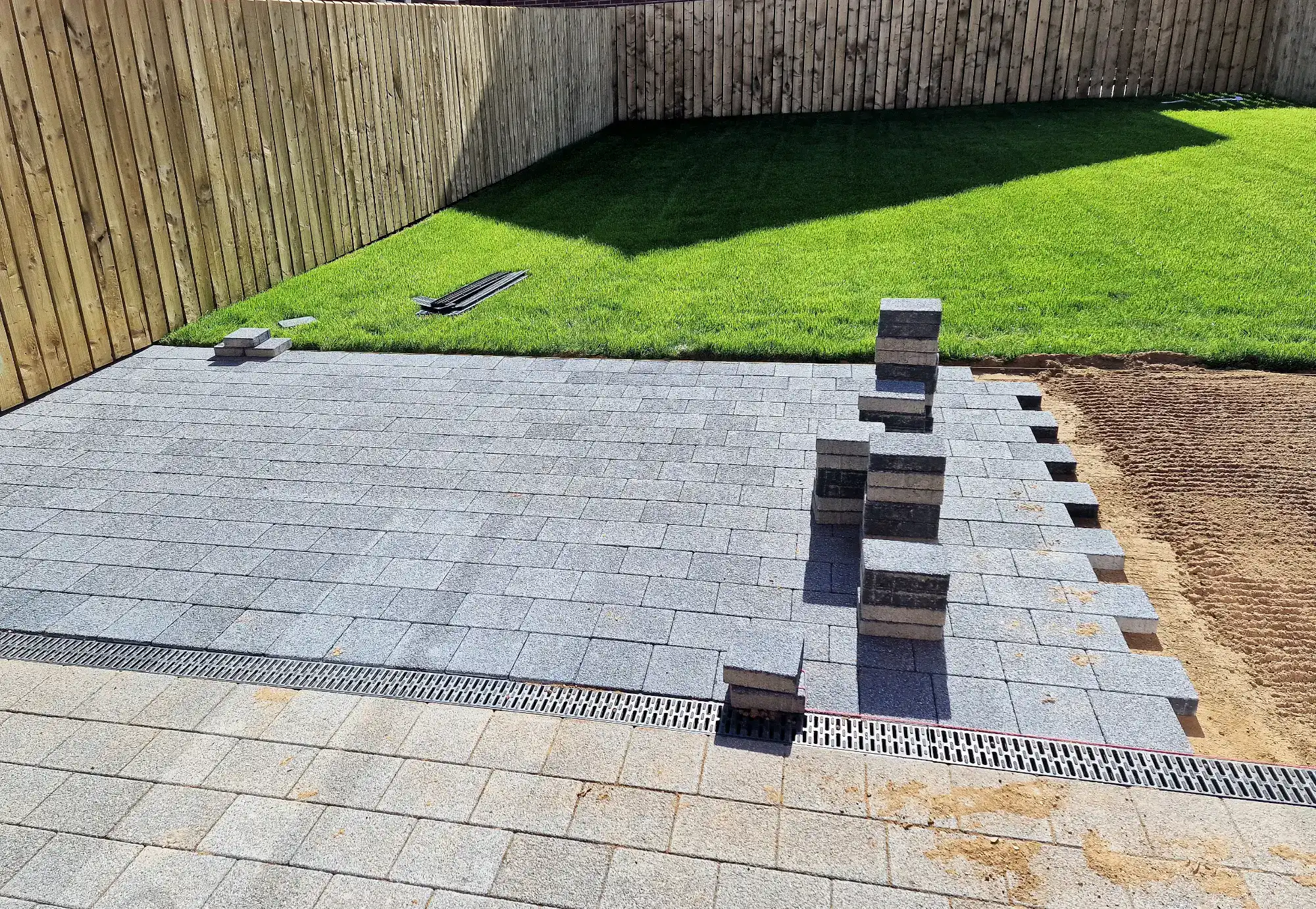
We start with a site evaluation to understand your drainage patterns and soil conditions. This isn’t just a quick look—we’re identifying potential issues before they become expensive problems.
Next comes excavation. We dig deeper than most contractors—typically 8-10 inches—to create room for a proper gravel base. This foundation work is where most paver failures start, so we don’t cut corners here.
The base gets compacted in layers using professional equipment. We’re not just spreading gravel and hoping for the best. Each layer is compacted to specific standards to prevent settling.
Finally, we install your pavers with precision. Every piece is leveled and aligned, with proper joint spacing and edge restraints. We finish with polymeric sand that locks everything in place and prevents weed growth.
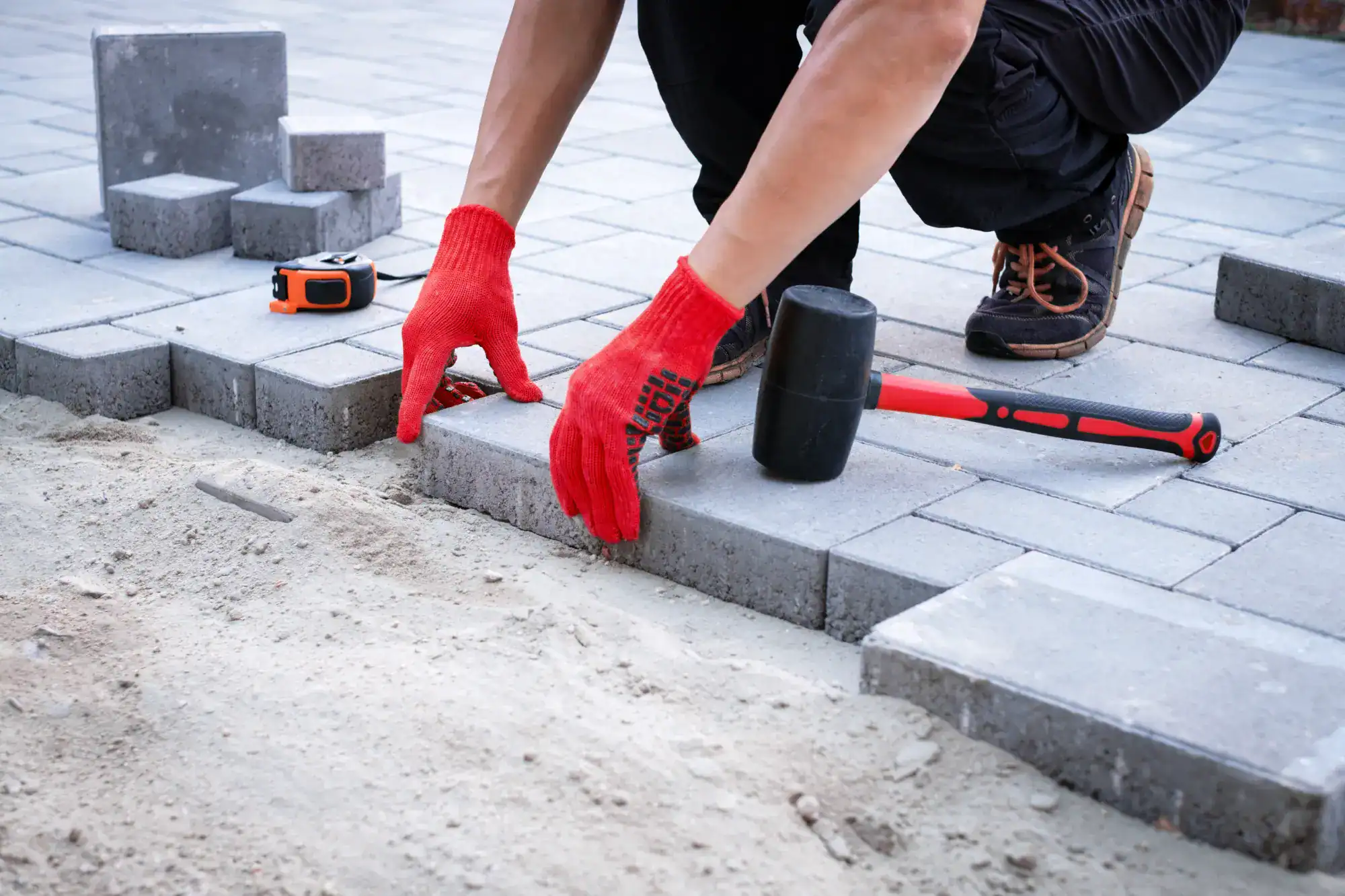
Ready to get started?
Your paver installation includes everything needed for a lasting result. We handle permits, excavation, base preparation, drainage solutions, and the final installation with professional-grade materials.
In Salisbury’s climate, proper drainage is critical. We incorporate the slight slope needed for water runoff—about 1/4 inch per foot—without creating a noticeable slant. This prevents the pooling and ice damage that can destroy paver installations.
We use only concrete pavers rated for freeze-thaw cycles. These aren’t the cheap pavers you’ll find at big box stores. Our materials are designed to handle Long Island’s weather extremes without cracking or fading.
Edge restraints are included in every installation. These aren’t optional—they’re what keep your pavers from shifting and separating over time. We use commercial-grade restraints that won’t deteriorate like plastic alternatives.
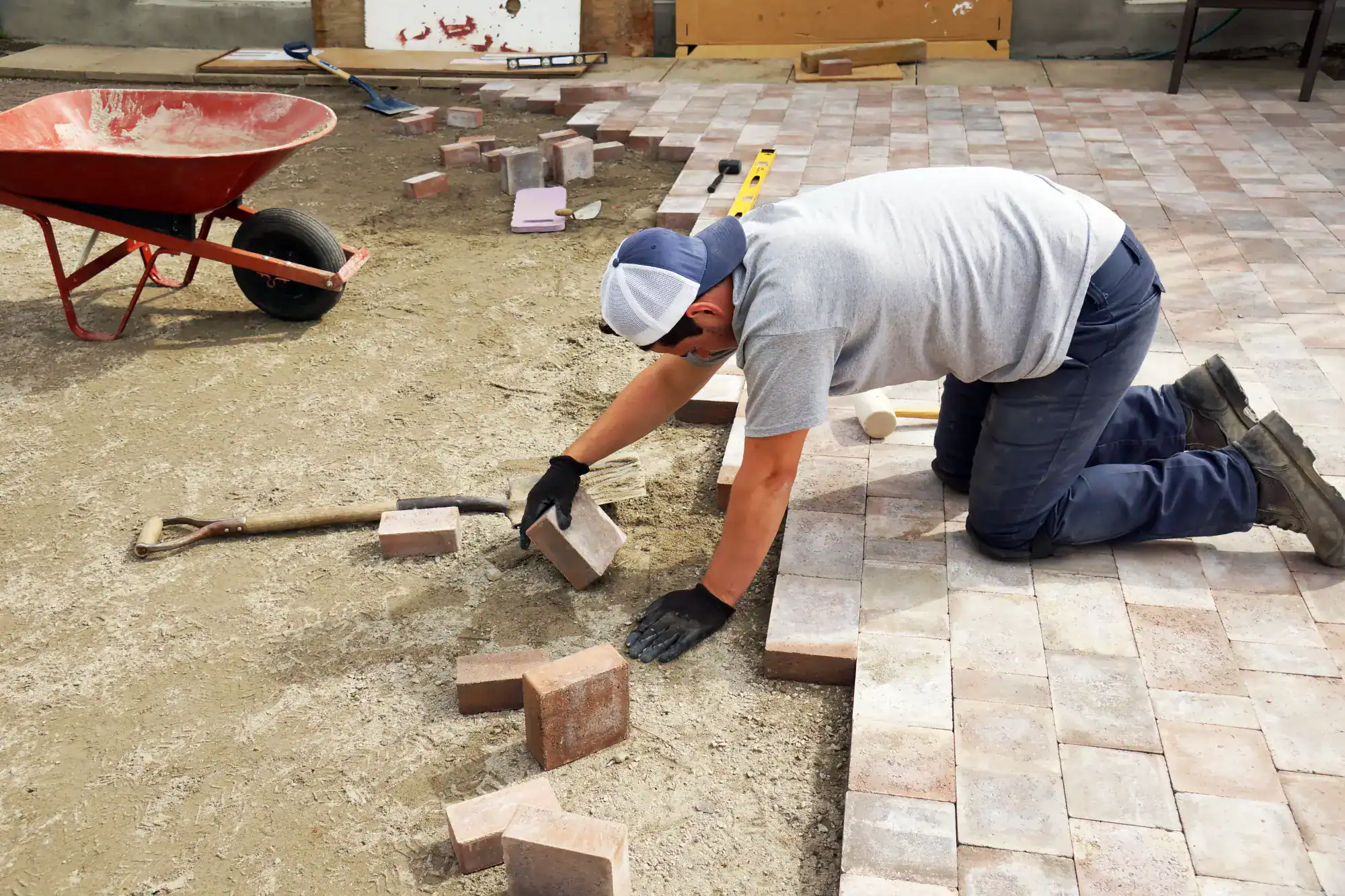
Ready to Fix That Masonry for Good?
Let’s talk about your project. No pressure, just honest answers and a quote you can count on from Nassau County’s trusted masonry professionals.

Company
Links